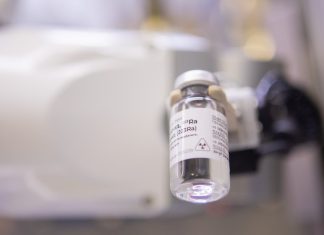The state guarantees program for 2023 will adjust the payment methods for treatment with the use of genetically engineered biological drugs and selective immunosuppressants (GEBD and SI) for four medical care profiles, namely, dermatovenerology, gastroenterology, rheumatology, and pediatrics, Vademecum reports.
According to the draft program, the initiation and change of GEBD therapy in these profiles will be removed from the model of clinical and statistical groups (CSG) and listed as high-tech medical care (HTMC). The All-Russian Union of Patients opposes the change, fearing that the availability of drugs may decrease if they are reclassified into the category of high-tech medical care.
All types of HTMC in the basic MHI program (HTMC-I) and outside of it (HTMC-II), which involve the conduct of GEBD therapy in these profiles, can now be used only to initiate treatment or change therapy, while supportive treatment with immunosuppressants remained in the MHI system.
The Ministry of Health amended the existing methods of HTMC funding and added new ones. A new group of Pediatrics profile with a tariff of 198,300 rubles has appeared in the list of HTMC-I. It involves the initiation of GEBD and SI for patients with juvenile arthritis with a high or moderate inflammatory activity and /or resistance to the administered drug therapy. Also, the only group of Rheumatology profile in the first list of HTMC was adjusted to include treatment initiation for adult patients with diseases pertaining to the profile, as well as the corresponding groups of Dermatovenerology and Gastroenterology profiles.
Three special groups of HTMC-II were established for the treatment of rheumatological diseases in children with a cost of treatment per case of 351,000, 637,000 and 903,000 rubles. Maintenance therapy has been excluded from treatment methods for patients under 18 years of age with severe bronchial asthma, exacerbation of atopic dermatitis, or severe chronic urticaria, with Crohn’s disease and recurrent ulcerative colitis.
The publication was not informed on the reasons for such changes by the Ministry of Health of the Russian Federation and the The Center for Expertise and Quality Control of Medical Care (CEQCMC) (they were in charge of updating the HTMC lists). Earlier, the center of expert examination, following the order of the head of the Ministry, Mikhail Murashko, conducted a large-scale reformatting of HTMC-I and HTMC-II lists, as well as clinical and statistical groups, in order to exclude duplicate methods.




